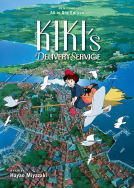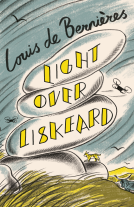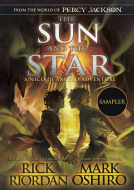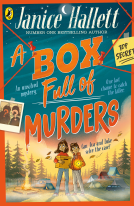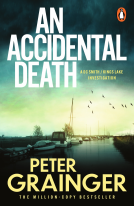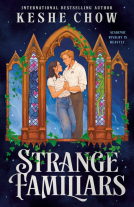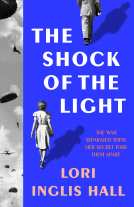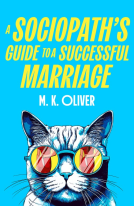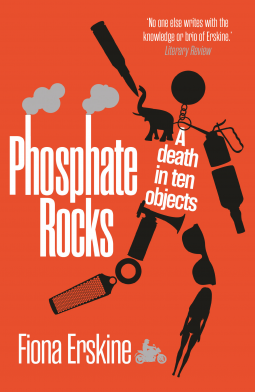
Phosphate Rocks
A Death in Ten Objects
by Fiona Erskine
This title was previously available on NetGalley and is now archived.
Send NetGalley books directly to your Kindle or Kindle app
1
To read on a Kindle or Kindle app, please add kindle@netgalley.com as an approved email address to receive files in your Amazon account. Click here for step-by-step instructions.
2
Also find your Kindle email address within your Amazon account, and enter it here.
Pub Date 17 Jun 2021 | Archive Date 17 Jun 2021
Talking about this book? Use #PhosphateRocks #NetGalley. More hashtag tips!
Description
As the old chemical works in Leith are demolished a long deceased body encrusted in phosphate rock is discovered. Seated at a card table he has ten objects laid out in front of him. Whose body is it? How did he die and what is the significance of the objects?
Advance Praise
Praise for Fiona Erskine:
‘Action, intrigue and a stonkingly modern heroine. It’s a blast.’ Sunday Times Crime Club
‘Just the right blend of suspense and tension.’ Forbes Magazine
‘A gripping, smart, fast-paced read.’ Helen Sedgwick, author of When the Dead Come Calling
‘No one writes with the knowledge or brio of Erskine.’ Literary Review
Available Editions
| EDITION | Paperback |
| ISBN | 9781913207526 |
| PRICE | £8.99 (GBP) |
Average rating from 13 members
Featured Reviews
 jean luc e, Librarian
jean luc e, Librarian
I simply can't remember when was the last time I got so intellectually engaged with a murder mystery written in English!
Ms Erskine definitely rocked my day with her fiendishly plotted and scientifically intriguing whodunit evolving around the unexpected discovery of a skeleton embedded in phosphate rock and the various objects found with it by a demolition crew at the site of an abandoned chemical plant in the rather bleak industrial landscape of Leith. Who is it? How long has it been there? And could the various and rather innocuous objects surrounding it be made to yield any clue? Just one point is certain: that death occurred after 1950 and before the 1990s....
A head scratching puzzle that will be painstakingly brought to a stunning denouement with brio, definitely leaving more than a few readers totally gobsmacked! Finally this incredible novel is also a captivating look at the Scottish chemical industrial world and its working conditions during the second half of the 20th century! The ultimate chemistry lesson to be enjoyed without moderation!
Many thanks to Netgalley and Sandstone for the opportunity to read this wonderful novel prior to its release date
Fiona Erskine’s Chemical Detective series has put her in the top rank of modern thriller writers but her new book takes an intriguing step in a different literary direction. Phosphate Rocks is a beautifully written work that defies categorisation. It is a murder mystery that is also part memoir, part chemistry manual, and the unique fusion of styles will educate and entertain crime and literary fiction fans alike.
The story centres around a body found inside the bowels of a Scottish fertiliser factory which is bizarrely caked in phosphate rock. Beside the corpse, and also encased in a chemical carapace, are a selection of random objects which provide clues (and red herrings) to the identity of the victim and the manner of the death. A female detective investigates, with John, the wise but irascible retired foreman of the chemical plant, her main witness. The satisfying plot leads us to a cracking (literally) denouement, but the narrative also takes us on a spectacular journey through the lost landscape of British heavy industry. It is a landscape peopled by remarkable workers, both heroic and hilarious, and it is home to chemical processes that are jaw-dropping in their scale and their potential danger. A particularly hair-raising episode throws the author’s alter ego (Fiona) into a tricky chemical dilemma that leads to a serious industrial accident. The scientific insights of her experiences reveal how close Edinburgh might have sailed to the terrible fates of Bhopal or Beirut.
Phosphate Rocks concludes with a biographical survey of the great chemists of the past and the book is a fascinating, compellingly-told paean to the bold visions and intrepid workmanship of the people who turned chemistry into industry.
 Paromjit H, Reviewer
Paromjit H, Reviewer
The extraordinary, smart and knowledgeable Fiona Erskine changes direction from her wonderful Chemical Detective series to write this mystery, a blend of fact and fiction, whilst simultaneously providing a glimpse into the bygone world of Scottish Agricultural Industries, an old Leith fertiliser factory, run with an iron fist intertwined with a compassionate understanding of his workers by John Gibson, the shift manager. Erskine provides a fascinatingly detailed insight into the chemicals and processes used, and if you are wondering about the source of her information, she once worked at the factory, mentored by Gibson in reality, this is a fictionalised account of their adventures. She describes this novel as 'Inspired by Primo Levi, in the style of Dan Brown, this is a portrait of a factory in all its complex, glorious, interconnected, messy entirety. A hymn to the forgotten, the unknown, the misunderstood, the story of a factory in decline and some of the fine people taken down with it.'
Driving the engine of this novel is the discovery of a body, a macabre tableau, discovered in phosphate rock at the abandoned factory being demolished. The dead victim is seated at a table on which are ten objects, clues and red herrings as to his identity. Leading the police investigation is DI Rose Irvine, assisting her with her inquiries is Gibson, who recognises every item on the table and the stories and people attached to them. The items include a ebony elephant with a strong whiff of sulphur, an Aberdeen key ring, a Barbie Doll with a rather exclusive and expensive dress, an air horn, whisky bottle, a broken pair of sunglasses, a brass washer, and an oil can (Aladdin's lamp). Gibson himself does not escape coming under the suspicious eye of Irvine, but the surprising and despairing answer to the mystery is arrived at by him.
Obviously the technical knowledge of this novel may not appeal to some readers, but books that carry a holistic knowledge of chemical elements, the Scottish fertiliser industry, and the community of skilled and memorable characters that worked at the factory, delivered through the form of an engaging mystery are rare indeed. What made this an unmissable read for me were the guys working on site, so often written off and misunderstood as unskilled by those above them, but were actually the beating heart of the company, with the kind of specialist knowledge and experience that is essential and valuable. One such guy that made an impression on me was the profoundly deaf, hard working and reliable Becksy, more trusted than many other workers. If you are looking for something different to read, wanting to learn about the field of applied chemistry and the old fertiliser industry in Leith and its people, then I cannot recommend this unique mystery highly enough. Many thanks to Sandstone Press for an ARC.
It doesn’t matter what you may think this book is about. If you read the brief, teasing blurb above that’s only going to scratch the surface of the story in Phosphate Rocks.
As I read the book I tweeted a few times that I had no idea how I was going to review it. That hasn’t changed, I am not sure how to succinctly articulate the utter pleasure I experienced reading Phosphate Rocks. Or the anguish, the horror, the fascination or the fun. This book had it all and, when it was done, I wasn’t. I wanted more. I wanted to keep reading about these remarkable overlooked heroes of their craft.
So what’s it about?
Well there’s a dead body in an old chemical plant in Leith (Edinburgh). The site is no longer active but before everything closed down it seems, somehow, a huge shroud of phosphate rock encased a work hut. Inside that hut was a dead body sat at a table. Laid out on the table in front of the corpse were ten objects which the police hope John Gibson, former shift manager at the site, can use to identify the deceased.
Sitting in a police station, years after his plant had closed down, John identifies each of the ten objects and tells Detective Inspector Rose Irvine the story behind each item. With each passing object the reader gets to know more about the men that worked the site, the work they undertook and how chemicals and materials from around the world would pass under the nose of these Edinburgh workers.
Also filling in the reader with background information is author, Fiona Erskine, who gives each object a quirky and fascinating science lesson. You learn about chemicals, reactions, inventions and discoveries. Reading this book taught me how chemicals move around the world, how they need carefully stored and cared for and how it’s the plant workers that know best how to keep a busy chemical site ticking over – not the managers, chemists or owners. It may not sound like slipping chemistry learning into a crime story could be fun or engaging but it is utterly absorbing (though Fiona will likely correct me on what absorption actually is).
The stories behind each of the objects are wonderful. Although this book is a work of fiction I am 100% convinced that many (if not all) of the stories are entirely anecdotal and based on actual events from the site. Why tie a long string around the neck of a whisky bottle? Who had the best dressed Barbie Doll in Scotland? Why should you not hit a pipe with a hammer and is that an author cameo we see before us? If many events in the book are indeed based on actual events it may go a long way towards explaining why the book is so engaging. Nothing feels forced, overdone or over-exaggerated. The guys (and in the main it is guys) working on the site all feel utterly real and entirely plausible. I defy you not to warm to them.
The true hero of the piece is John Gibson. He is taken on a journey back through his working life and the stories he tells DI Irvine bring back memories of old colleagues – some more fondly remembered than others. John and DI Irvine are a charming pairing through the story too their conversations, some of which take place away from the police station when Irvine tracks him down to his favourite restaurant, are a cautious but intricate dance. Neither party is willing to overshare but both appear to crave more knowledge about the other.
Phosphate Rocks is a crime story. There is a dead body, there are clues to help the investigators determine his identity and there is a man helping police with their enquries at the police station. But Phosphate Rocks is so much more. It is a story of a life (John Gibson), of many lives, of a plant that no longer dominates its corner of Leith and of the men who for years kept that plant ticking over. Clever men, inventive men, hard men and men with secrets. But I felt Phosphate Rocks is also a love story. I read of a time now gone which is much missed, a love of science and method and process and of low paid staff performing dangerous and skilled work. An affection of the cameraderie, the respect for John Gibson and the responsibility he held for the staff on his shift. It’s funny then it’s tragic and I want you all to read this story too.
Phosphate Rocks, currently my book of the year. It will take something incredible to top this one.
 Reviewer 194793
Reviewer 194793
Phosphate Rocks was a very intriguing read. Part fiction, part science lesson, I found it to be an enjoyable read. It’s relatively short, and structured in such a way that it’s easy to pick it up and read a bit when you have the time.
 Librarian 431790
Librarian 431790
It reminded me of one of those GAD whodunit that devilishly complex and you have no hope of guessing the solution because the author was very clever in plotting the story.
It's a great mystery and it's an interesting way to learn some science as the author is a talented storyteller and a good popularizer.
A gripping and fascinating story that kept me turning pages and trying to guess.
It's the first book I read by this author and won't surely be the last.
Highly recommended.
Many thanks to the publisher and Netgalley for this ARC, all opinions are mine
During the demolition of a factory, a shocking discovery is made: a mummified corpse encased in a carapace of hardened dust – phosphate rock – surrounded by ten objects that provide tantalising clues as to its identity. Phosphate Rocks: A Death in Ten Objects unravels the mystery using a mix of real-life anecdote, scientific explanation, and a touch of fiction, woven together to create a vivid account of the life and decline of a factory over five decades. Highly recommended.
Readers who liked this book also liked:
Created by Hayao Miyazaki
Comics & Graphic Novels, Sci Fi & Fantasy
Rick Riordan; Mark Oshiro
Children's Fiction, LGBTQIA, Teens & YA
M. K. Oliver
General Fiction (Adult), Humor, Mystery & Thrillers
